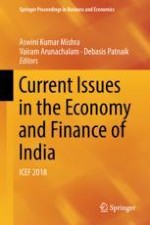Economic and social positioning of individuals are the prime indicators which are directly related to incomes of the households. Income
and consumption expenditure determines economic stability and social well-being of the households. Income
is used as a display to measure economic deprivations of the households in India
. So, both the income
and consumption expenditure are used to measure the overall conditioning of the households. Here the question arises weather consumer behaviour is determined more by income
or expenditure. Some policy makers and economists believe that poverty can’t be displayed by current income
and it is not a stable measure to provide an exact description of individuals well-being (Meyer and Sullivan in The American Economic Review, 2221–2241,
2008). Consumption expenditure is not determined by consumers current income
, but the measures of consumers “permanent” income
are representative by his/her ability to earn income
over a longer time period and also Expectations of future earnings and wealth (Friedman in A theory of the consumption function: A study by the National Bureau of Economic Research. Princeton University Press
1957). and the income
which Friedman talks about is the annual incomes of consumers expect to earn over the years. It has been observed that income
and expenditure didn’t remain similar among households. Income
is concerned as a good indicator of well-being for various reasons which are Housing, Food, Child care, Health care and other necessities. In low income
households there is a possibility of consumption without expenditure and earnings. Income
and expenditure are the two key fundamentals by which people make the best efforts to live a good life. Everyone wants to have a handsome income
to live in a comfortable way. This study examines the income
and expenditure pattern of slums dwellers
and their financial requirements among the key financial services (i.e. savings
, credit, insurance, micro-leasing and pension schemes) of Lucknow city, Findings suggest that poor people can and do save, particularly when institutional barriers to saving are cut off. Institutional polices should target poor people on the bases of poverty so that poor can get an opportunity to promote their poverty into more sustainable and inclusive wealth endorsement policies that will assist them to create own pathways out of poverty.
